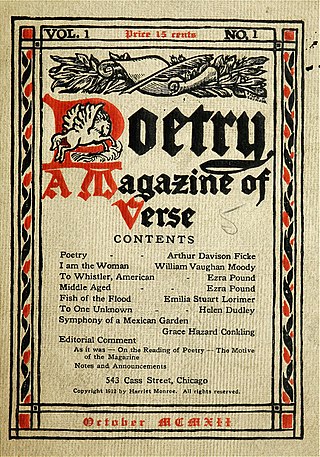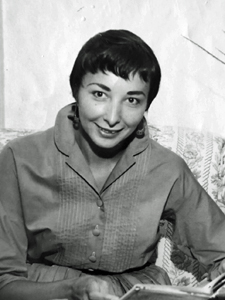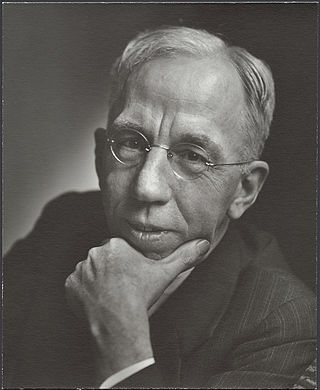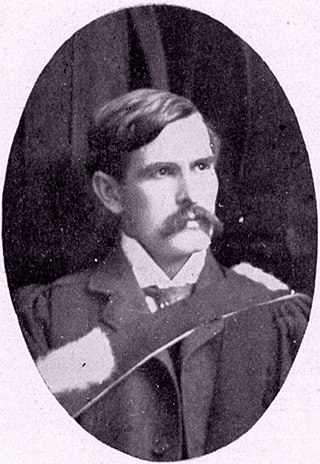Related Research Articles
Canadian literature is written in several languages including English, French, and to some degree various Indigenous languages. It is often divided into French- and English-language literatures, which are rooted in the literary traditions of France and Britain, respectively. The earliest Canadian narratives were of travel and exploration.
Anne Patricia Carson is a Canadian poet, essayist, translator, classicist, and professor.
Canadian poetry is poetry of or typical of Canada. The term encompasses poetry written in Canada or by Canadian people in the official languages of English and French, and an increasingly prominent body of work in both other European and Indigenous languages.
Francis Reginald Scott (1899–1985), commonly known as Frank Scott or F. R. Scott, was a lawyer, Canadian poet, intellectual, and constitutional scholar. He helped found the first Canadian social democratic party, the Co-operative Commonwealth Federation, and its successor, the New Democratic Party. He won Canada's top literary prize, the Governor General's Award, twice, once for poetry and once for non-fiction. He was married to artist Marian Dale Scott.

A literary magazine is a periodical devoted to literature in a broad sense. Literary magazines usually publish short stories, poetry, and essays, along with literary criticism, book reviews, biographical profiles of authors, interviews and letters. Literary magazines are often called literary journals, or little magazines, terms intended to contrast them with larger, commercial magazines.

Phyllis Webb was a Canadian poet and broadcaster.
Louis Dudek, was a Canadian poet, academic, and publisher known for his role in defining Modernism in poetry, and for his literary criticism. He was the author of over two dozen books. In A Digital History of Canadian Poetry, writer Heather Prycz said that "As a critic, teacher and theoretician, Dudek influenced the teaching of Canadian poetry in most [Canadian] schools and universities".
Arthur James Marshall Smith was a Canadian poet and anthologist. He "was a prominent member of a group of Montreal poets" – the Montreal Group, which included Leon Edel, Leo Kennedy, A. M. Klein, and F. R. Scott — "who distinguished themselves by their modernism in a culture still rigidly rooted in Victorianism."

Bernard Keble Sandwell, or BK as he was more commonly known, was a Canadian author, and a magazine and newspaper editor, best known as the editor of Saturday Night (1932-1951).
John Glassco was a Canadian poet, memoirist and novelist. According to Stephen Scobie, "Glassco will be remembered for his brilliant autobiography, his elegant, classical poems, and for his translations." He is also remembered by some for his erotica.

Robert Lecker is a Canadian scholar, author, and Greenshields Professor of English at McGill University, where he specializes in Canadian literature. He received the H. Noel Fieldhouse Award for Distinguished Teaching at McGill University in 1996. Lecker is a leading authority on Canadian literature. In 2012, Lecker was named a Fellow of the Royal Society of Canada in recognition of his influential studies on literary value in English Canada and Canadian cultural identity. In addition to his teaching and academic writing, Lecker has held a number of prominent positions in the Canadian publishing industry throughout his career. He founded ECW Press in 1997, he co-edited the Canadian literary journal Essays on Canadian Writing between 1975 and 2004, he has edited several anthologies of Canadian and international literature, and he currently heads a literary agency in Montreal, the Robert Lecker Agency.
grOnk, or GRoNK, was a Canadian literary magazine begun in 1967 by bpNichol and others (for example, David Aylward, David W. Harris, and Rah Smith. After the primary 8 series of 8 issues each were published, it was Nichol's efforts that maintained the irregular periodical, with guest editors including Nelson Ball, jwcurry, Steve McCaffery and R. Murray Schafer. An offshoot of Ganglia Press's Ganglia magazine, grOnk began with material gathered for Ganglia's sixth issue and became a monthly publication focusing on concrete poetry and "the language revolution" underway in Canada at the time, publishing a wide variety of "extralinear" writing from an international cast of contributors anchored in a context of parallel developments in Canadian literature. "GrOnk brought together British, Czech, American, Canadian, French and Austrian concrete and experimental practitioners..."
The Montreal Group, sometimes referred to as the McGill Group or McGill Movement, was a circle of Canadian modernist writers formed in the mid-1920s at McGill University in Montreal, Quebec. The Group included Leon Edel, John Glassco, A. M. Klein, Leo Kennedy, F. R. Scott, and A. J. M. Smith, most of whom attended McGill as undergraduates. The group championed the theory and practice of modernist poetry over the Victorian-style versification, exemplified by the Confederation Poets, that predominated in Canadian poetry at the time.

Sandra Djwa is a Canadian writer, critic and cultural biographer. Originally from Newfoundland, she moved to British Columbia where she obtained her PhD from the University of British Columbia in 1968. In 1999, she was honored to deliver the Garnett Sedgewick Memorial Lecture in honor of the department's 80th anniversary. She taught Canadian literature in the English department at Simon Fraser University from 1968 to 2005 when she retired as J.S. Woodsworth Resident Scholar, Humanities. She was part of a seventies movement to establish the study of Canadian literature and, in 1973, cofounded the Association for Canadian and Québec Literatures (ACQL). She was Chair of the inaugural meeting of ACQL. She initiated textual studies of the poems of E. J. Pratt in the eighties, was editor of Poetry, "Letters in Canada" for the University of Toronto Quarterly (1980-4), and Chair of Canadian Heads and Chairs of English (1989).
Joan Walker, née Suter, was a Canadian writer. She won two noted Canadian literary awards in the 1950s, the Stephen Leacock Award in 1954 for Pardon My Parka and the Ryerson Fiction Award in 1957 for Repent at Leisure. Pardon My Parka was a humorous memoir of her own experiences adapting to Canadian culture after moving to Canada as a war bride, while Repent at Leisure was a novel about a woman trapped in a troubled marriage.
The Canadian Authors Association is Canada's oldest association for writers and authors. The organization has published several periodicals, organized local chapters and events for Canadian writers, and sponsors writing awards, including the Governor General's Awards.

Oscar Pelham Edgar was a Canadian teacher. He was a full professor and head of the Department of English at the Victoria College, Toronto from 1910 to 1938. He wrote many articles and several monographs on English literature. He had a talent for identifying and encouraging promising new authors. He was an active member of various literary societies, and was the force behind the establishment of the Canadian Writers’ Foundation to help needy authors.

Fred Jacob was a journalist with Toronto's The Mail and Empire, and joined the publication after winning the publication's poetry contest.
Arthur Lionel Stevenson (1902–1973) was a North American writer and lecturer. A leading authority on the literature of the Victorian period, he published biographies of William Makepeace Thackeray and George Meredith as well as a panoramic study of the English novel. He was James B. Duke Professor of English Literature at Duke University from 1955 until 1972.

Annie Charlotte Armitage Dalton MBE was an English-born Canadian poet, sometimes known as "the Poet Laureate of the Deaf."
References
- 1 2 "Canadian Authors Association". The Canadian Encyclopedia
- 1 2 3 4 William H. New (2002). Encyclopedia of Literature in Canada. University of Toronto Press. p. 566. ISBN 978-0-8020-0761-2.
- ↑ W.H. New; William Herbert New (6 August 2003). A History of Canadian Literature. McGill-Queen's Press - MQUP. p. 131. ISBN 978-0-7735-2597-9.
- 1 2 Colin Hill (2012). Modern Realism in English-Canadian Fiction. University of Toronto Press. p. 42. ISBN 978-1-4426-6491-3.
- ↑ " "MAKING LITERATURE HUM": CANADIAN LITERARY JOURNALISM IN THE TWENTIES". SCL, Volume 06, Number 2 (1981). Kathryn Chittick
- ↑ "The Modern-Realistic Movement in English-Canadian Literature". page 27-28. Colin Hill, Department of English McGill University, Montreal, 8 Apr 2003
- ↑ W.G. Fleming (15 December 1972). Educational Contributions of Associations: Ontario's Educative Society. University of Toronto Press, Scholarly Publishing Division. pp. 251–252. ISBN 978-1-4875-9706-1.
- ↑ Nick Mount (2 September 2017). Arrival: The Story of CanLit. House of Anansi Press Incorporated. p. 45. ISBN 978-1-77089-222-4.
- ↑ Dirk Hoerder (2010). To Know Our Many Selves: From the Study of Canada to Canadian Studies. Athabasca University Press. p. 209. ISBN 978-1-897425-72-5.
- ↑ Lyn Harrington (August 1981). Syllables of Recorded Time: The Story of the Canadian Authors Association, 1921-1981. Dundurn. p. 218. ISBN 978-0-88924-112-1.
- ↑ Benjamin Lefebvre (2013). The L.M. Montgomery Reader: Volume One: A Life in Print. University of Toronto Press. p. 27. ISBN 978-1-4426-4491-5.
- ↑ "The Canadian author and bookman". WorldCat report.
- ↑ "Canadian Author seeks new home". By: Mary Beaty, 18 February 2004.